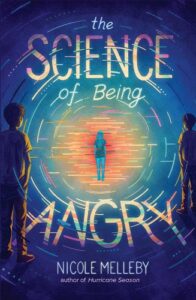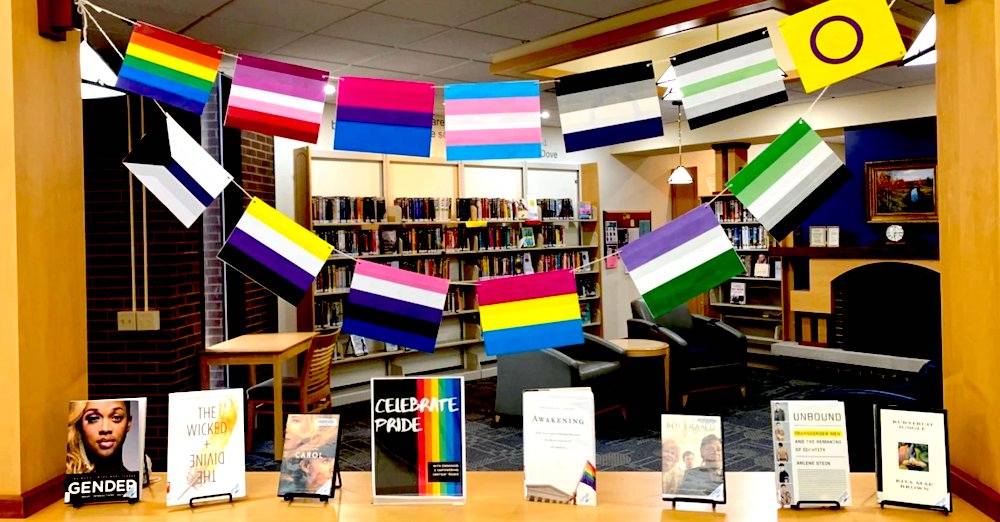My Queer Life Is Not Inappropriate, and Neither Are the Books That Reflect It
Nicole Melleby on Writing Books that Help Queer Kids and the Kids of Queer Parents Feel Seen
People are often taken by surprise when I tell them that I’ve always, as long as I can remember, wanted to be a mom. Maybe because by the time I realized I was queer, I was already in my twenties and hadn’t talked about how badly I wanted to have a family of my own someday, because I was too afraid of admitting what that family would look like.
Maybe because I hit a point where I didn’t believe I’d ever get to be a mom after all, so why should anyone else believe it was meant to be, either?
It took me a while to understand at all that I was queer. I went to a small Catholic school, and I was pretty sheltered inside of those white, straight, cisgender walls. I remember, very clearly, working on a group project in the seventh grade. A friend, Kristen, and I were sprawled out on the classroom carpet, cutting out pictures from a magazine to then paste onto a posterboard. While flipping through the magazine, I asked Kristen, “Do you ever just really, really like the way another girl’s face looks?” Of course she didn’t understand what I was saying. I didn’t even understand what I was saying, that what I was talking about was attraction.
Years later, in high school, the movie adaptation for Rent was out in theaters, and the drama club (which I was a part of) all went together to see it. It was my first exposure to that kind of queer representation, and although I still didn’t know why, I was captivated. I felt like my world had been cracked open, even if it still took me a few more years before I was able to realize what it all meant. Once I started understanding who I was, I didn’t know how to handle it: Could I pretend I’m not gay? Could I just end up alone so that I never have to admit it? Could I give up my dream of being a mom someday, because I don’t even know how it works if there are two moms?
I always knew I wanted to be a mom, but with no examples of two mom homes in my life growing up, I didn’t know I could.It was one of the reasons I wrote my second book, In the Role of Brie Hutchens. I wanted to give the Catholic school student that I once was a chance to see herself in a book. I wanted to give those students a chance to see themselves, too, to show them that this is not only possible, this can be wonderful.
It can be wonderful. I know that now. And writing Brie Hutchens was the chance for me to reach back and heal the kid I used to be who didn’t know that at all. The kid who thought she was damaged and wrong.
When I sat down to write The Science of Being Angry, it was a little bit different. I wasn’t writing for the kid I used to be anymore. I was writing for the type of mom I want to be. I started writing this story knowing only one thing for sure: I wanted the main character, a twelve-year-old girl, to have two moms. Up until now, I’d written books with single parents and books with straight parents, but I’d avoided writing about the kind of home of my own I wanted to have some day.
The worries I had while writing this book were new: Would people get confused by which character is “Mom” and which is “Mama”? Are they different enough characters so that the reader can tell the moms apart? Is Microsoft Word really going to give me a grammar error squiggle every single time I write “moms” in the plural?
Eventually, I realized that these characters would stand on their own, because I was writing them with the same care and attention with which I write all my characters. And that would be enough.
Because my family, like everyone else’s family, deserves to be written about and seen, and it took me a long time to realize that. There weren’t any two mom or two dad families on TV when I was growing up. I didn’t see them in children’s books. I always knew I wanted to be a mom, but with no examples of two mom homes in my life growing up, I didn’t know I could.
I’m married to a woman. Our children will have two moms. What will that be like for them? Will they have examples in the media of kids and families like their own?
Will books featuring kids that look like them and feel like them and have families like theirs be banned from their schools?
I always knew my books ending up on banned lists was a possibility, ever since I started writing. But I think having a vague idea that maybe your books will be controversial and the actuality of seeing those books pop up in school board meetings and banned book lists with “inappropriate” and “no educational merit” slapped on top of them are two very different realities. And the reality here is this: I write books about queer kids with queer parents. I write about kids like me, about families like the one I’ll have myself some day. I write about kids struggling with sexuality and depression and understanding their place in the world and how they fit within their family. I write about kids.
It hits in a different way when you realize these books being banned are about people like you, about your life and who you are and how you take up space in the world. My life isn’t inappropriate. Neither are the queer kids I write about. And when you ban these books, you’re telling them they don’t deserve to see themselves. That they are inappropriate, and their lives have no merit. And you are wrong.
It took me far too long to realize that.
I wrote The Science of Being Angry for the type of mother I want to be. And the type of mother I want to be is this: someone who sits and reads books with my kids, stories about families like ours or about experiences outside of our own. I want to be the type of mother who opens the door to a billion different worlds for my kids. I want to be the type of mother who has conversations with my kids about what they read and learned, and if they feel sad or angry or happy or scared when reading these stories. I want to be the type of mother who teaches my kids empathy, and the type of mother who shows my kids that no matter who they are or what they become there is a story out there for them, or someone like them, or someone completely different.
I want to be the type of mother who believes with all my heart that I’m meant to be a mother, that it’s okay that my wife and I are mothers together.
I don’t want to be the type of mother who takes that opportunity away from my kids, or from anyone else’s kids, either. I don’t want to be the type of mother who closes the door on understanding my kid and giving them the stories in which they see themselves. To see that whoever they are, it’s not inappropriate. As a matter of fact, it’s wonderful.
It’s been a long time since I was in middle school, but even now, these books are vital. My best friend’s son is an eighth grader. He’s a quiet kid who wears nail polish because he likes it. This week in school, when asking another kid if he could pass him the stapler, he got called an “emo homo” by the other kid.
He went home, upset, and told my friend what had happened.
“Why is listening to emo music insulting?” my friend asked her son. “Why is being with someone of the same gender insulting?”
“Why is passing a stapler to an emo homo a problem?”
It’s not, her son concluded. None of it is wrong.
Maybe if the other kid had read a few of these books being banned, he would know that, too. Maybe if he had a parent, like my best friend, like the mom I hope to be, willing to teach him empathy and understanding, and to show him that there are queer people (and people who listen to emo music, for that matter) who are wonderful and normal and part of his life and this world, he would realize that. Maybe if someone put these books into my hand when I was growing up, I would understand that I was attracted to the women in the magazines I was cutting out for a class project. Maybe if I had been able to see queer lives reflected in books growing up, I wouldn’t have had to sit in a movie theater at seventeen years old, with the rest of the drama club, watching Rent for the first time, seeing Maureen and Joanne kiss and think, “Oh. They can do that.”
Maybe if we read these books with our kids instead of trying to ban them, our kids would have a better chance of knowing that they’re wonderful, too.
It took me far too long to realize that. My life, along with the books that reflect it, is not inappropriate.
And I’ll keep writing these books and doing what I can so that it doesn’t take my kids, or any of the others who need books like mine, longer than it should take anyone to know that.
________________________________________

The Science of Being Angry by Nicole Melleby is available now via Algonquin Young Readers.




















